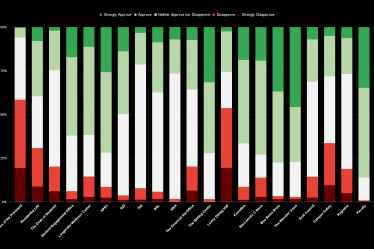Nick Shiach assumes position for one semester
Brandon Bell
News Editor
Nick Shiach ’20 has been selected to serve as an at-large representative on Campus Council, filling a vacancy created while Eric Guberman ’19, the student originally elected to the position, studies abroad this semester.
Shiach, who was the runner-up in last spring’s election for one of the four at-large positions, will serve on the council until Guberman returns in the spring.
The council does not currently have a rule prohibiting its student members from studying abroad during their terms. Until recently, it also did not have a precedent for how to fill a vacant seat caused by such a semester-long absence.
In this case, the council’s Election Committee determined that it would be best to have a runner-up from the election last year fill the empty seat. Matthew Hartzell ’19, who chairs the committee, planned to ask the runners-up to fill the seat in the order they finished in this election.
“This [procedure] was voted on by Campus Council and passed,” Hartzell said. “If a runner-up were to decline the opportunity, we would then select the next runner-up, and so on.”
This was not necessary, however, as Shiach accepted the position. He said that he was “excited to take the opportunity” and that he wanted to use his semester-long term to work on and bring attention to the issues he had campaigned on as a candidate — including transparency and student privacy. To this end, he said that although he felt the Scot’s Key had undergone positive revisions, he still saw problems he wanted to address.
“For example, I am very troubled with how the Scot’s Key addresses students’ right to privacy in their residences,” said Shiach. “Currently, the College has the right to conduct searches of all residence hall rooms, offices, desks, lockers, toolboxes, vehicles, computers and even email files at any time for any reason. I don’t believe this to be consistent with the law or best practices.”
He also said he was concerned about revisions to the hazing policy, arguing that they would draw focus away from incidents he felt were the most harmful.
“Hazing continues to be a huge problem on campus, so policy should focus on harmful hazing, instead of being distracted by harmless activities,” said Shiach.
Shiach began his work on the council at its meeting on Sept. 21, joining the Outreach Committee, a new committee managing the council’s communication with the campus; the Charter Committee, which oversees the process of issuing charters to student organizations and the Election Committee.
As a new member of the same committee that selected him to fill the vacancy, Shiach said that he felt that the process used in his case was fair and could be used in the future. However, he acknowledged that the process of selecting “alternates” could be made clearer, and said that he felt Campus Council should consider forbidding its representatives from studying abroad during their terms.
“In many student organizations, students who plan to be absent for a semester during the coming school year cannot be considered for an executive board position,” Shiach said. “Given the importance of each Campus Council position [held by students], I would support a similar policy for this body.”
Jordan Griffith ’19, another representative on Campus Council, agreed with Shiach and wanted the process to be implemented sooner in the future.
“I think it was fair to the candidates and the students,” Griffith said. “In the future, I’d like the process to be initiated earlier so that we have a full council for the entire term.”
According to Hartzell, a new, explicit policy is being written for how to address its student members who decide to study abroad, which will be implemented in future cases.
With the only vacant seat filled, the student body again has full representation on the council. Students are allotted nine out of 17 voting seats on Campus Council.

